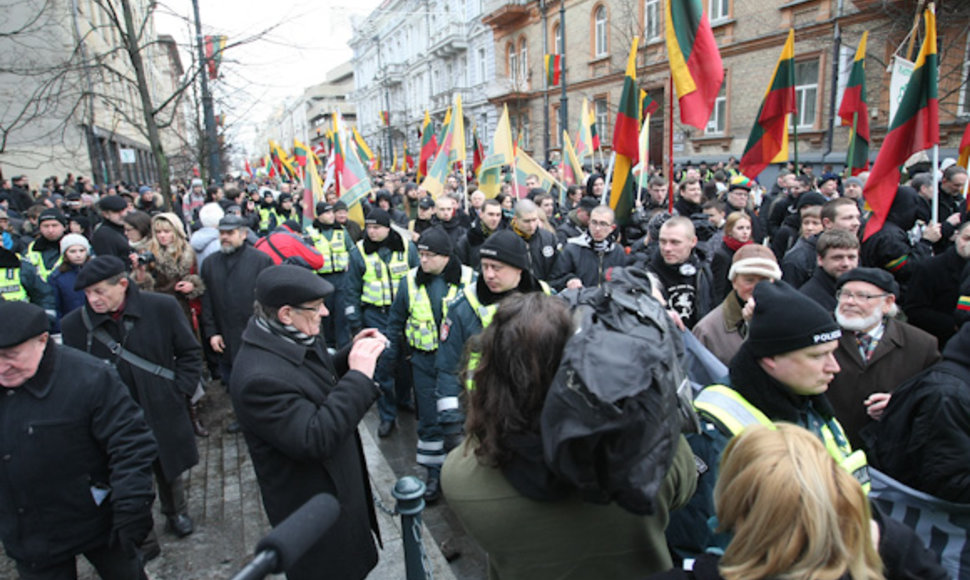The Lithuanian Union of Nationalist Youth told Vilnius administrative court that the municipality had imposed an artificial restriction upon the right to march along Gedimino Avenue on March 11. The organizers were offered another, less central location.
"They are artificially restricting our right to hold the March 11 rally and celebrations of the occasion. The municipality decided to build three stages on Gedimino Avenue, this has never happened in 22 years – this aims to block passage and restrict our rights," Ričardas Čekutis, chairman of the Lithuanian National Center, said at the court hearing on Thursday.
The leader of the Lithuanian Union of Nationalist Youth, Julius Panka, told the court that the organizers found the location offered by the municipality, Upės Street, unacceptable.
Monika Ražukaitė, the municipality's representative in court, asked the court to reject the union's complaint, emphasizing that the right of assembly may be restricted in certain cases.
"They say that our right is not absolute. However, the right to gatherings is not absolute and can be restricted, as stated by the Supreme Court and the Constitutional Court. The right is not absolute and can be restricted in cases when it is needed to ensure public peace, rights and freedoms of other individuals. The municipality exercised the right," Ražukaitė said.
The municipality said state institutions enjoy a priority right to choose the time and venue of events on public holidays.
Last year, the traditional nationalist rally on the Independence Day was attended by about 900 people.
Holding official flags, they chanted Lithuania's name and sang patriotic songs. However, some human rights defenders criticized the slogan “Lithuania for Lithuanians” and participation of skinheads in the event.
Lithuania celebrates March 11 as the Day of Restitution of Independence, marking the Independence Act signed in 1990 that restored Lithuania's independence after 50-year Soviet occupation.












